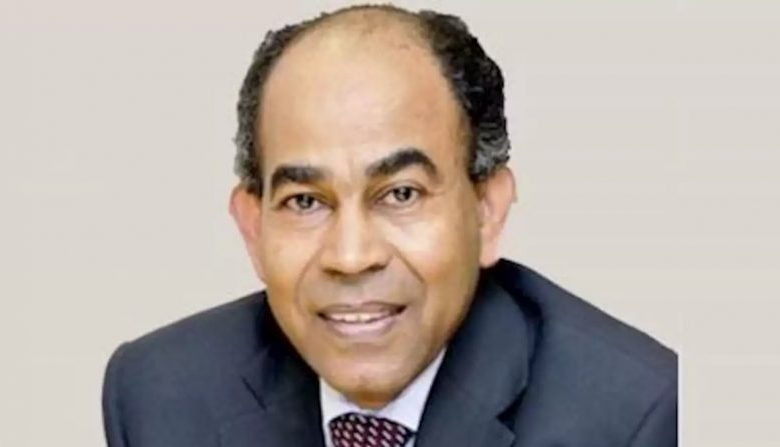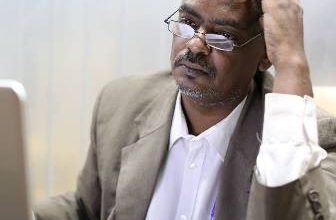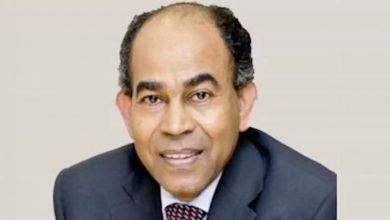Sudan and the Strange Campaign Against the Return of the Displaced!

By: Othman Mirghani
Alongside the military war, Sudan has also been, and continues to be, the battleground of an intense media and psychological war aimed at influencing public opinion, creating confusion, inciting discord, spreading despair, and undermining morale. While disinformation has been a key weapon, social media platforms have served as a central arena for this war, due to their speed, wide reach, and the tendency of many users to share posts without scrutiny. This creates a powerful tool for influence and opens the door for disinformation campaigns led by “electronic armies” or individuals with vested interests.
Recently, an intensified narrative has emerged, focused on fearmongering and persuading refugees and displaced persons not to return to the homes they were forcibly removed from. This comes at a time when return campaigns have been gaining momentum following the army’s recapture of large areas, including the latest: Khartoum. The language of this fear campaign exaggerates the instability and danger in army-controlled areas, claiming the absence of basic services like water, electricity, healthcare, and education—portraying them as uninhabitable.
Another aspect of this campaign is the escalation by the Rapid Support Forces (RSF) and their backers, involving drone warfare that primarily targets energy projects, electricity transformers, and sometimes even shelters for displaced persons. While such attacks alone cannot win the war, they do increase people’s suffering and obstruct efforts to repair infrastructure systematically destroyed by the RSF.
RSF fighters also participate in this campaign by broadcasting videos threatening to attack and overrun northern regions, and by releasing footage of massacres committed against civilians—as was the case in a horrific video this week showing the execution of civilian prisoners in the Salha area, south of Omdurman.
The common thread in these campaigns is the effort to spread fear, instill despair, break morale, undermine popular support for the army and its military campaign, and downplay the significance of its widespread victories—portraying them as failures to bring security or livable conditions to civilians.
Beyond this, the campaigns may aim to pressure the army to return to negotiations and to push the international community to intervene under the pretext that living conditions are deteriorating and people’s suffering is worsening. Throughout the war, some forces have bet on creating circumstances that justify international intervention under various banners—from promoting talk of famine to waving the flag of civilian protection. Since the army’s victories, the return of people to their homes, and the resumption of normal life weaken that bet, fear campaigns have intensified to demoralize people and halt their return from displacement and asylum areas.
These campaigns use multiple tools, including traditional media articles, social media posts and comments, and rumors—like the false report about radioactive leakage from the Oncology Hospital in Khartoum, or claims that the bombing of Wadi Sidna military base north of Omdurman wasn’t by RSF drones, but by American and Israeli aircraft. All of this aims to create anxiety and convince people that the situation is unsafe and the war is escalating. The forces engaged in this psychological and media war don’t stop at warning against return—they aim to sabotage every voluntary return initiative, as if staying in asylum and displacement areas were the only acceptable option.
Deterring Sudanese people from returning is not necessarily driven by humanitarian or security concerns, but often reflects political interests and calculations. Some view citizens’ return as confirmation of the army’s victories and those fighting alongside it—something they don’t want. Such is the outcome of extreme polarization in Sudan, where some see the army’s victory as their own defeat, and the RSF as a tool to implement their agenda.
No reasonable person can deny that the war has created harsh conditions in Sudan, and that widespread, systematic destruction of infrastructure has hurt essential services. But on the other hand, significant efforts are underway to clean up war debris, sanitize streets, and restore essential services. These efforts are enthusiastically driven by returning citizens who are securing and rebuilding their neighborhoods, calling on neighbors and relatives to come back and join the reconstruction and the restoration of normal life.
Life in exile and displacement cannot become a permanent state or an accepted fate. Sudan cannot be built in refugee camps or displacement shelters, but by the will and efforts of its sons and daughters inside their own neighborhoods, villages, and cities—no matter how great the challenges or mounting the pressures. Return is not just a triumph of determination and willpower—it is the cornerstone for reconstruction, restoring security and stability, preserving social cohesion, and participating in the building of the nation and protecting it from fragmentation, collapse, and foreign ambitions.



